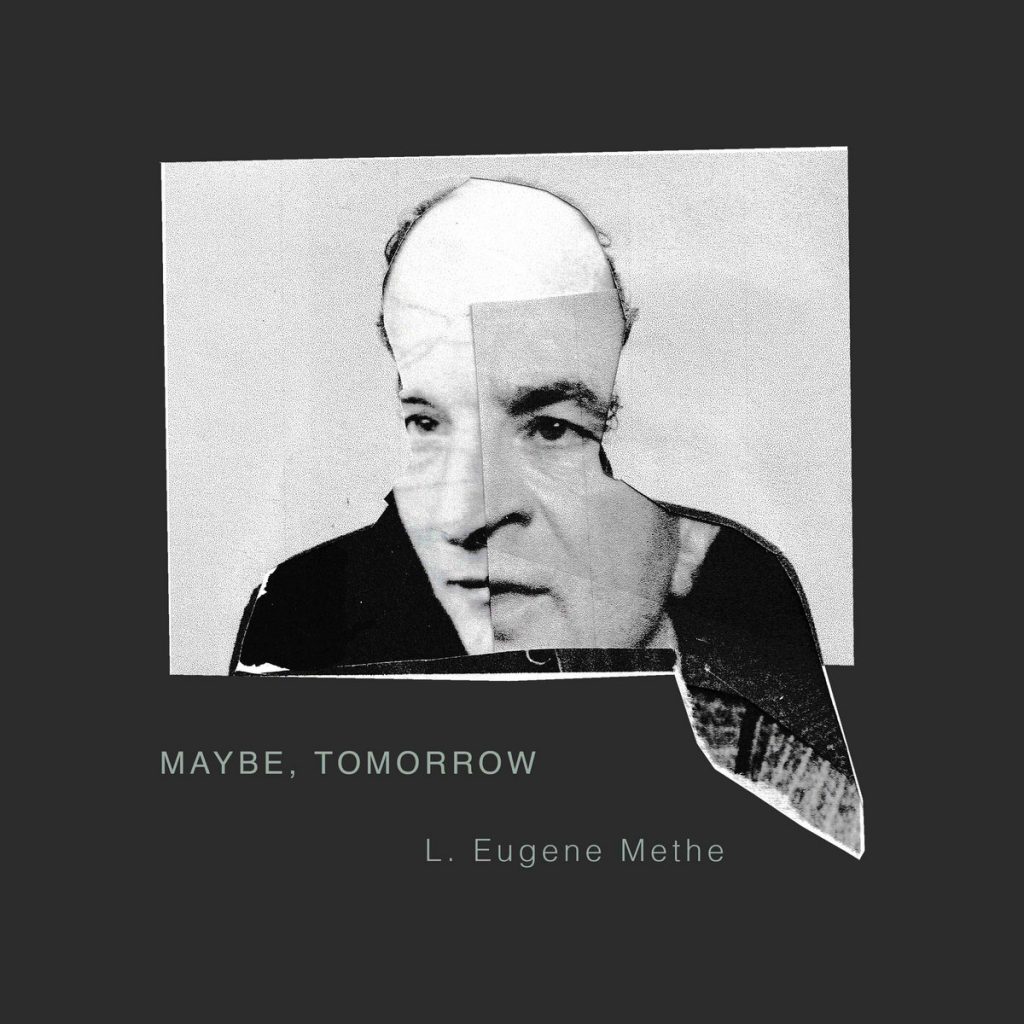L. Eugene Methe’s work to date has been all over the map. The Nebraska-based musician has recorded one LP of lyrically precise, performatively loose songs somewhat similarly to the output of fellow Omaha resident (and Grapefruit label proprietor) Simon Joyner. As a sideman, he’s played keyboards for Joyner and others. But he’s also recorded murky audio environments with Naturaliste and Citizen Electrical, whose recordings Methe has released on his own Gertrude Tapes label. On Maybe, Tomorrow, he combines these disparate sound worlds with powerfully disorienting results.
“Street Leaf” sets the stage. The drums sound like distant gunshots and the guitar like amplified corrosion while Methe articulates a perspective so remote that by song’s end, its narrator no longer knows if he even exists. “Hours” shifts to an external point of view, with funereal electric piano and cello framing a portrayal of mental decline. So far, the sounds serve the songs’ bleakness. But advance a couple tracks to “Electric,” and things get more complicated. While the song’s protagonist seems painfully over-preoccupied with personal struggle, the music seems to swallow him up and then spit him out again. Is it expressing his struggle, or making fun of it?
“Ice Machine” starts out as another dark tale, with Methe recounting a dire tavern scene. But then a swirl of loops pulls the listener into the titular machine’s guts, then down through the floor, where the album’s monstrous centerpiece awaits. “Frigidaire” is a remorseless pummel, with a stomping groove like something that Throbbing Gristle might’ve concocted for the action scenes of Jurassic Park, if only Genesis P-Orridge and Co. could’ve talked their way into being the movie’s Foley artists. But just when it seems that Methe has lost his words, the racket evaporates, and his cracked, apologetic croon rises up through a shimmer of vibes and strings. What just happened? At that moment, the singer might be Paul Hackett, Griffin Dunne’s character in Martin Scorsese’s After Hours, only he ends the movie sitting in front of a piano instead of a computer keyboard.
—Bill Meyer


